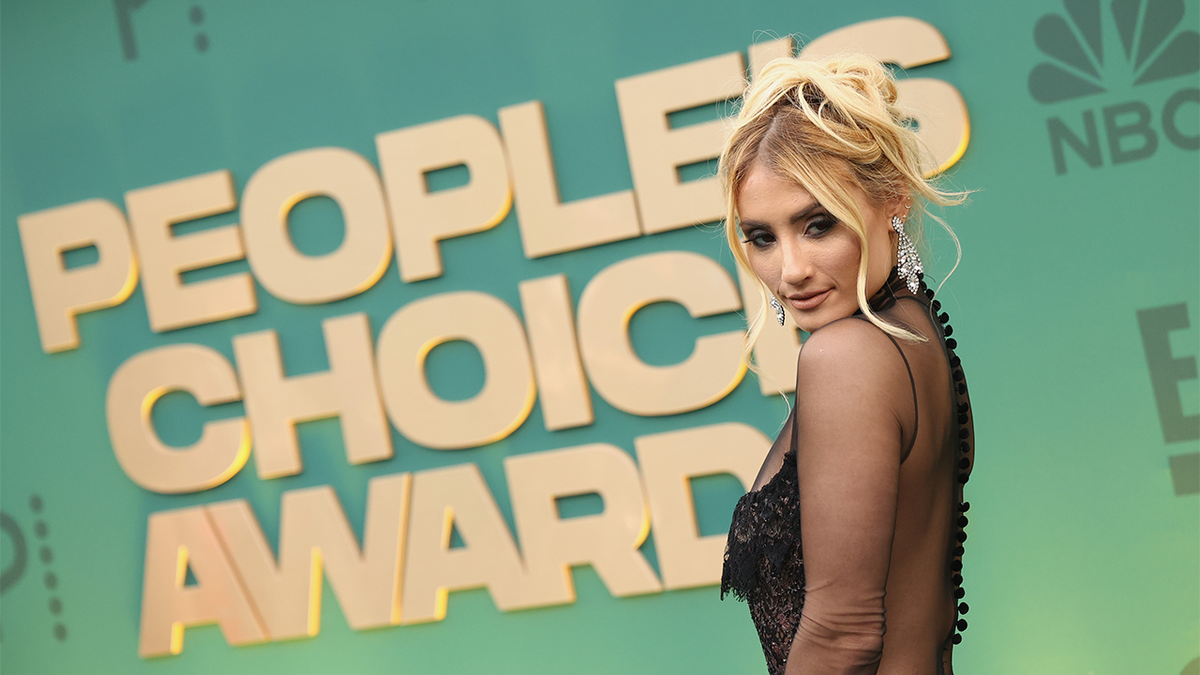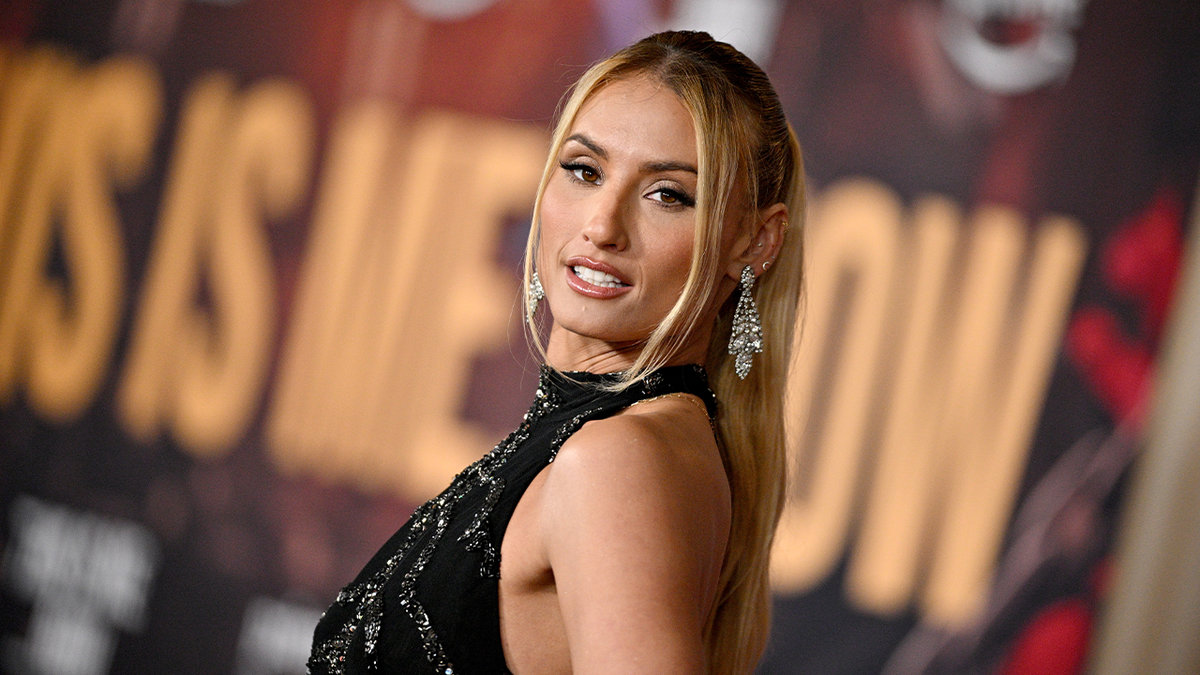TikTok star details why she is working to fight antisemitism via her social media activism
Montana Tucker said in the social media age it is ‘unfortunately popular to be anti-Jew,’ but as a Jewish person she plans to continue speaking out against antisemitism.
TikTok star Montana Tucker has been using her platform to spread awareness about antisemitism in the months after the October 7 attack on Israel.
The singer, dancer and social media activist, who grew her social media following to 14 million by singing and dancing videos, recently made her Jewish heritage a bigger part of her content, she told Fox News Digital in an interview. Since October 7, she has recognized the need for more education about the history of antisemitism and Holocaust denialism among America's youth.
Tucker grew up in Boca Raton, Florida, with two grandparents who survived the Holocaust. They often told her about the horrors of the Holocaust and the importance of never forgetting the genocide of six million Jews during World War II. When her grandfather, whom she called Zadie, passed away at 97 four years ago, she felt compelled to continue his legacy by reminding people they should "never forget."
Tucker visited Poland where she filmed a docuseries called "How to Never Forget" that was released in 10 mini-episodes on her social media. The series included a visit to Auschwitz and personal stories about her grandparents, with the goal of educating America's youth about the Holocaust.
"Antisemitism has always been here, it has always been here," she said. "When I released that series, that was kind of the first time I introduced my followers really to my family's background. A lot of them never knew that I was Jewish. My name is Montana Tucker. My content, at the time, wasn't specifically Jewish content."
"Then a year later, with everything that happened on October 7, I felt that it was my responsibility, it was my duty to make sure that I share personal stories of what was happening," she continued. "This is my people, my grandparents didn't have a voice back during the Holocaust, and now I have a voice and I'm able to stand up for what I believe in and speak out for people who don't have a voice."
In December, Tucker went to Israel to meet with survivors of the October 7 attack and their families. She used the opportunity to spread the message of what happened and share their personal stories, which she said is of upmost importance given some have downplayed or denied certain aspects of the attack or attempted to justify it.
"When I always heard Holocaust denial, I couldn't believe it," Tucker said. "That's why, with what's going on now in the world with all the denial, even though we were live-streamed what happened on October 7, there's still denial about it or still denial of what is going on. I never understood that concept of people denying something that was so obviously shown with evidence of survivors, but now living in it, people denying what happened on October 7, it's really scary and it's even more of a reason why I keep using my voice."
Tucker also said she has heard from people in Hollywood who've thanked her for what she has done in speaking out for Jewish people since October 7, but explained it makes her upset that people are afraid to share or talk about what they believe in.
"I've had people in Hollywood come up to me that are, I'm here [motions down] and they're there [motions up], they're on a whole different level than me in their careers, and they come up to me and say, 'Thank you so much for what you're doing, you're amazing, you're really taking one for the team.' And I'm like, 'What do you mean? Like, have you shared anything? Have you posted anything?' And they said they did in the beginning [but] when they got so much hate from it and lost business, followers, whatever it is and now they're scared to post. In my mind I'm like ‘do hear how crazy that sounds?’"
"Especially when there are so many awesome, powerful Jews in Hollywood … I think people absolutely need to stop being scared," she said. "If you're going to lose business over you talking about being Jewish or you talking about innocent lives that were taken, then you shouldn't want to do business with those people. Point-blank."

Montana Tucker attends the 2024 People's Choice Awards at Barker Hangar on February 18, 2024, in Santa Monica, California. (Getty Images)
Tucker pointed to social media as a huge reason why antisemitism has been allowed to proliferate, making it "popular to be anti-Israel" and "popular to be anti-Jew."
"With Gen Z and younger generations, we live in this day and age of what's trending, what's popular and if you look at popular hashtags on these apps ... #hitlerwasright was a massive trending hashtag on TikTok, #osamabinladen was a massive trending hashtag on TikTok, all pro-Palestine content was super trending, billions of views, versus Israel or anything to do with pro-Israel was like super, super low."
She said a lot of people discussing the conflict on social media aren't educated on the issues, so when an average user comes across a viral video with 30 million views sharing one person’s opinion about Israel or Gaza, "all of a sudden now it's a ripple effect of everyone that just saw that video now believes that because they don't know better."
Tucker said the impact of social media needs to be taken seriously, since it is where so much information is shared and news is consumed, allowing antisemitism to proliferate in the months following October 7.
"Even with October 7, think about if we didn't have social media nowadays, how different that could have been with what spiraled after," she said. "I think what happened on October 7 was the start, and now we're a hundred and how many days in, and it's only gotten worse with everyone's opinions and everyone's thoughts in these videos … being fed to people every single day [there is] so much propaganda that I see."
"Fortunately, I heard from survivors, but my grandma was 13 when she was taken to the Holocaust, and she's 95 [now], so in a few years, there are going to be no more survivors left," she said. "Imagine the denial that's going to happen then with literally no survivors."
Tucker said one of the ways to combat antisemitism is to teach America's youth about the Holocaust in schools.

Montana Tucker attends the Los Angeles Premiere Of Amazon MGM Studios "This Is Me...Now: A Love Story" at Dolby Theatre on February 13, 2024 in Hollywood, California. (Getty Images)
"I grew up in Florida, which is one of the states that did have it, thankfully, and my grandparents used to speak at all the schools … But there are a lot of people who don't," she said. "It's hard to blame these kids that just genuinely don't know better because they weren't taught it in school."
"Then they come across this TikTok video that denies the Holocaust or says Jews are terrible … and that's all they're going to know and that's all they're going to believe," she said. "If their favorite rapper or their favorite athlete spews out antisemitic comments, they look up to that athlete, they look up to that rapper, they're going to say, 'That must be true.'"
Tucker encouraged Americans to do their own research and continue to learn about the long and difficult conflict in Israel and the Middle East. She also said people should be easier on each other because there is "so much hate" in the world and in the U.S., specifically.





















